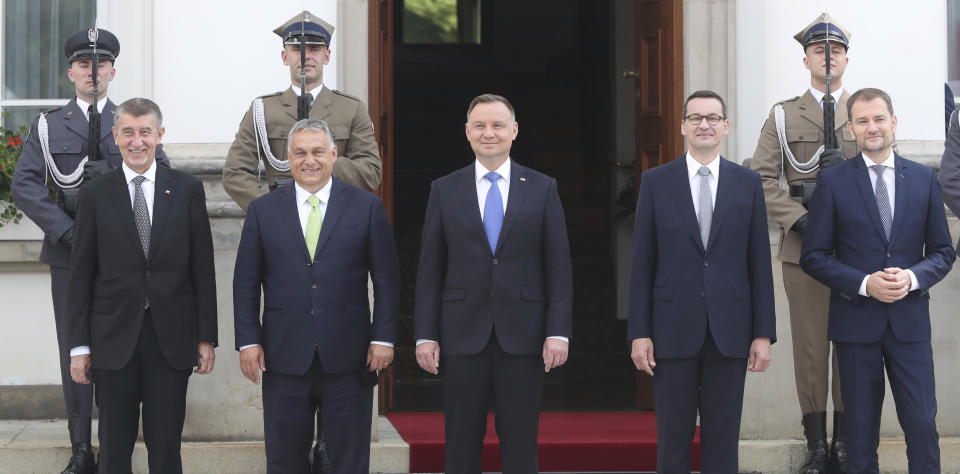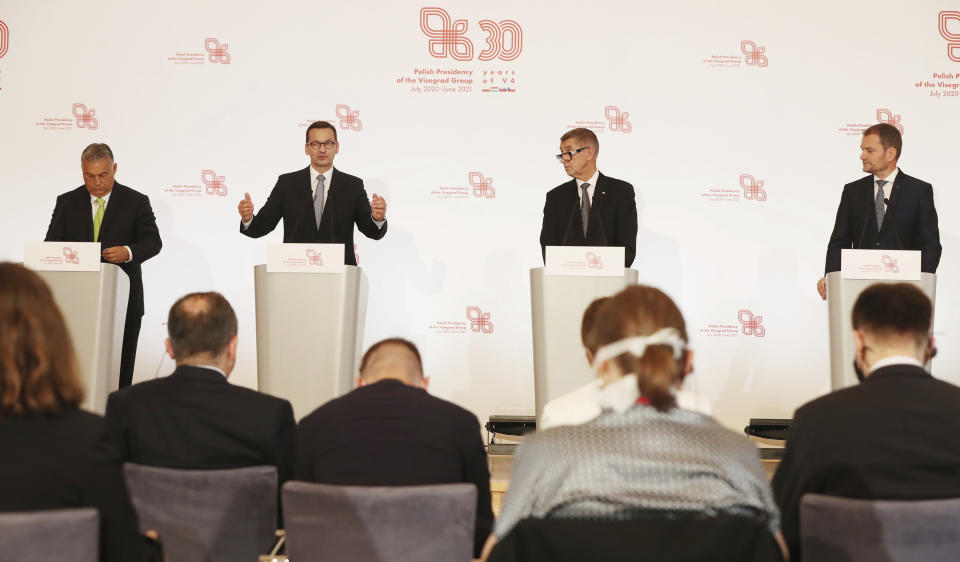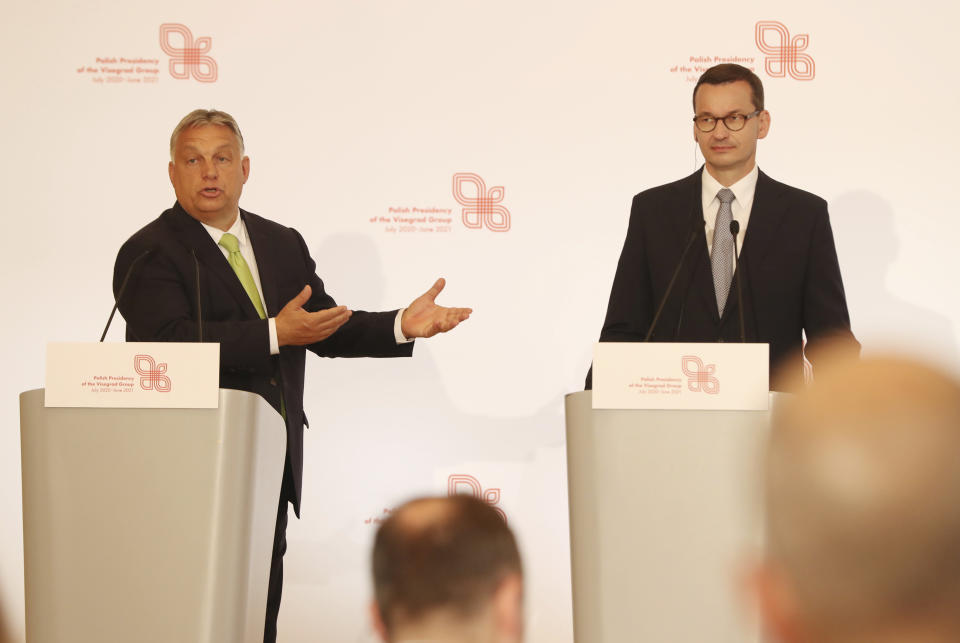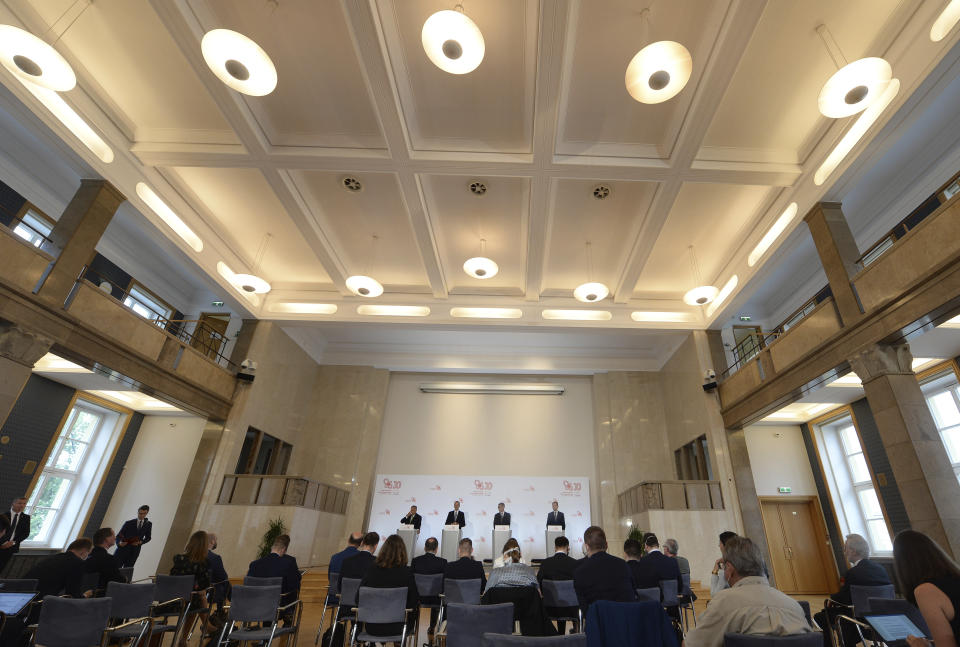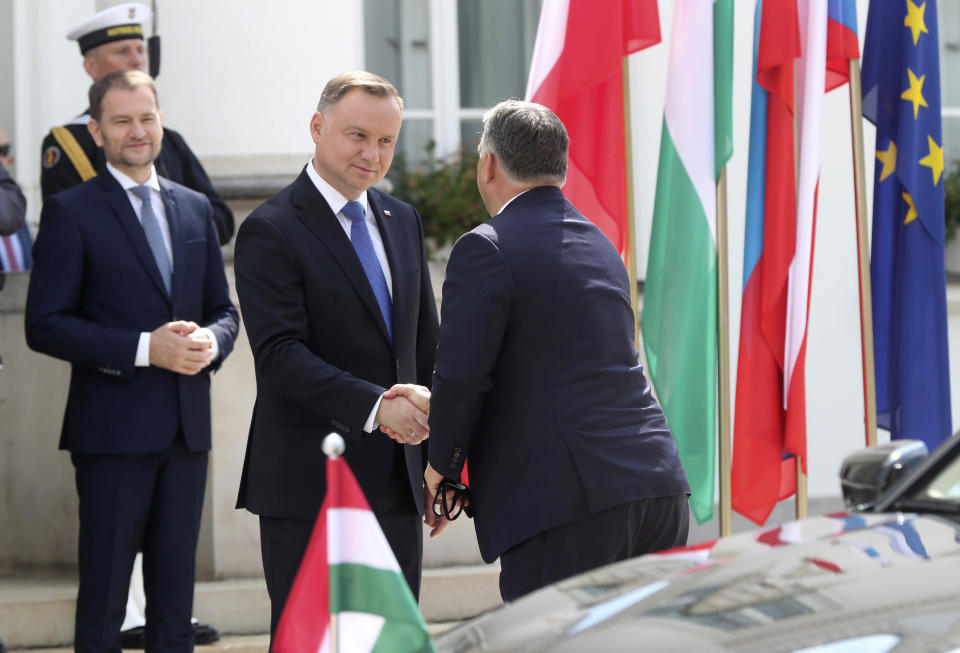Poland wants generous EU budget for Central Europe
WARSAW, Poland (AP) — Polish President Andrzej Duda said Friday that the European Union’s budget for the next seven years should be generous for Central European nations, which aim to help drive the economic recovery from the coronavirus recession.
Duda spoke to open a summit of prime ministers of the Visegrad Group, a regional cooperation alliance that also includes the Czech Republic, Slovakia and Hungary. Poland is taking over the group's rotating 12-month presidency from the Czech Republic.
“We want our region to be one of the poles of development in Europe after the pandemic. We have great ambitions but also great development needs," Duda said.
“For that reason, we want an ambitious European budget that will be focused on development, on European cohesion and on big structural investments that will fuel European economy in our region,” he said.
Duda urged the government leaders to agree on a joint strategy for the ongoing 2021-2027 budget negotiations among the 27 members of the European Union. Some member nations want the budget reduced for Poland and Hungary,arguing that government policies in the two countries violate EU principles of the rule of law and democracy.
“I want the budget negotiations to be closed as soon as possible, with the desirable results,” Duda said.
Hungarian Prime Minister Viktor Orban said later that he trusts the negotiations during a July 17-18 EU summit in Brussels will be successful, but he stressed that he views the existing proposals as “very far” from the “wise financial compromise that we need.”
Polish Prime Minister Mateusz Morawiecki described the proposals on the table as “not bad and interesting.”
Also attending the Warsaw meeting were Slovakian Prime Minister Igor Matovic and Czech Prime Minister Andrej Babis.
In Germany, Chancellor Angela Merkel pushed for a quick agreement on a recovery fund aimed at pulling the EU out of the coronavirus recession. Speaking to the upper house of parliament she said that “every day counts.”
Germany this week took over the rotating EU presidency for six months, giving it a key role in trying to reach a deal on the recovery fund.

 Yahoo News
Yahoo News 